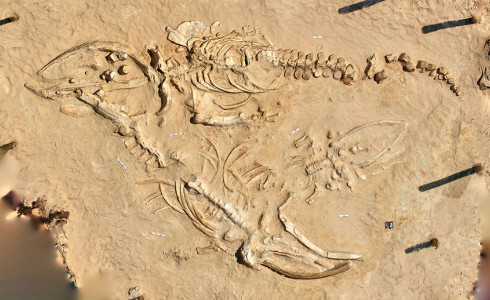8:29
Electric Bacteria Form Nanowires, Shoot Out Electrons
USC’s Moh El-Naggar says engineers hope to harness bacterial energy using fuel cells.
17:14
Less Flashy Fossils Offer Paleoclimate Clues
Uncharismatic microfauna, such as insects and mollusks, are giving scientists at La Brea Tar Pits in Los Angeles a glimpse of the city’s cool, humid past.
22:52
Can the Bacteria in Your Gut Send Messages to Your Brain?
Researchers discuss how the microbiome might play a role in anxiety, depression, and autism.
6:51
Microbes Thrive in Antarctic Lake Buried Beneath Ice
Microbes have made a home in a lake trapped beneath an 800-meter-thick ice sheet in Antarctica.
9:49
Neanderthals and Modern Humans Mingled for Millennia
New, more accurate radiocarbon dating suggests the two cultures co-existed in Europe for nearly 5,000 years.
Classroom Strategy: Image of the Day
Three approaches for using images as gateways to instruction in grades 4-16.
Tar Noir: Paleoforensics at the La Brea Tar Pits
Using paleoforensics, researchers recount the grim details of life and death at the the La Brea Tar Pits.
Salad Dressing Science: Emulsion Lab
In this experiment, you will test a few common household ingredients to see which is the most effective emulsifier for making salad dressing – and you can eat your results!
21:23
Behind the Scenes at the City Morgue
Forensic pathologist Judy Melinek’s memoir “Working Stiff” goes behind the scenes at the New York City morgue.

